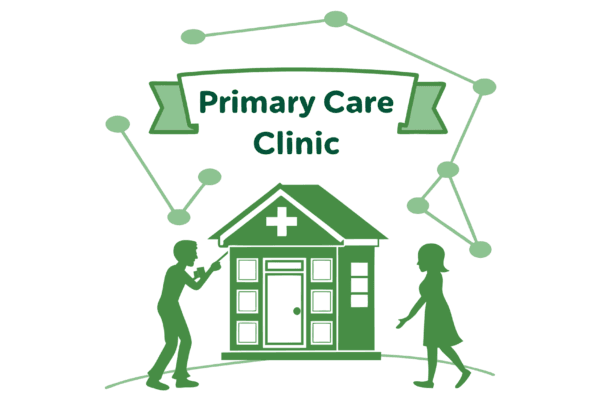The market for oncology practices in Iowa is shaped by two powerful forces: strong demand driven by regional health needs and a wave of strategic consolidation by larger health systems. For practice owners, this environment creates a significant, time-sensitive opportunity. Navigating this landscape to achieve a premium valuation for your life’s work requires careful planning and a clear understanding of current market dynamics.
Market Overview
The Iowa oncology market presents a compelling case for practice owners considering a sale. The current landscape is defined by strong fundamentals and significant buyer activity, making it a seller’s market for those who are well-prepared.
High Demand for Care
Iowa’s unfortunate-but-true high cancer rates, ranking second in the U.S. for individuals over 50, create a sustained and non-discretionary need for oncology services. This provides a stable patient base, a factor that is highly attractive to potential buyers. Practices with a strong presence, particularly those involved in rural outreach clinics, demonstrate a deep integration into the community, which buyers value. Your practice is not just a business. It is a vital community health asset.
The Push for Consolidation
Across the state, financial pressures and strategic growth initiatives are driving hospitals and larger health systems to acquire independent practices. They are looking to build comprehensive, statewide cancer care networks. This trend means there are motivated, well-capitalized buyers actively looking for practices like yours to expand their footprint. This environment creates competitive tension that, when managed correctly, can lead to premium valuations.
Key Considerations for Your Sale
As you begin to think about selling, your focus should shift from day-to-day operations to how a buyer will see your practice. Getting these three areas in order is a critical first step and can prevent major headaches during due diligence.
- Regulatory Readiness. Buyers will scrutinize your compliance. Ensure you are following all state and federal laws, from Iowa’s five-year patient record retention rule to federal Anti-Kickback and Stark Law statutes. Clean compliance records give buyers confidence.
- Staff Stability. In a state with healthcare staffing shortages, a practice with a stable, experienced team is incredibly valuable. Buyers see a loyal staff as a sign of a healthy culture and lower operational risk. Protecting this asset during the transition is key.
- Patient Retention. A buyer is purchasing your future revenue stream, which depends on your patients. Having a clear plan for transitioning patient care and demonstrating a history of patient loyalty can directly increase your practice’s value.
Market Activity Signals a Strong Opportunity
This is not abstract theory. The Iowa oncology M&A market is active and producing significant outcomes for sellers. You only need to look at the recent acquisition of Mission Cancer + Blood by University of Iowa Health Care. This was a landmark $280 million transaction that brought more than 20 facilities under the UI Health Care banner. A deal of this magnitude sends a clear signal to the rest of the market. Strategic buyers are willing to pay premium prices for well-run oncology practices that can help them build a statewide care network. This activity creates a rising tide that can lift valuations for practices of all sizes.
The Sale Process Roadmap
Selling a practice is not a single transaction but a structured process. Running a confidential, competitive process is the best way to protect your interests and maximize your final value. While every sale is unique, the journey generally follows a clear path.
- Preparation and Valuation. This is the foundation. We help you clean up financials and develop a clear picture of your practice’s true worth before it ever goes to market.
- Confidential Marketing. We create professional marketing materials and discretely approach a curated list of qualified strategic and financial buyers without your name ever becoming public.
- Negotiation and Structuring. We manage the bidding process to create competitive tension, then help negotiate not just the price, but the terms of the deal that best fit your goals.
- Due Diligence. This is where buyers dig into your operations and financials. Being prepared here is the key to a smooth process. We manage the flow of information to prevent deal fatigue.
- Closing and Transition. We work with your legal and accounting teams to finalize the legal documents and ensure a seamless handover to the new owners.
How Your Oncology Practice is Valued
Understanding your practice’s value is more than a formula. It’s about telling the right financial story. Sophisticated buyers value practices based on a core concept: Adjusted EBITDA multiplied by a market multiple. Adjusted EBITDA is your practice’s true cash flow, calculated by taking your net income and adding back interest, taxes, depreciation, and any owner-specific or one-time expenses. The multiple is where the art comes in. It is influenced by several risk and growth factors.
| Factor | Lower Multiple | Higher Multiple |
|---|---|---|
| Provider Reliance | Dependent on a single owner | Associate-driven with multiple providers |
| Growth Profile | Stable, but flat revenue | Consistent year-over-year growth |
| Revenue Streams | Standard billing only | Diverse, including ancillaries or clinical trials |
| Payer Mix | High concentration with one insurer | Healthy mix of government and commercial payers |
An expert valuation uncovers the true EBITDA of your practice and frames its story to justify the highest possible multiple.
Planning for Life After the Sale
The day you close the sale is a beginning, not an end. Thinking through what comes next before you sign a Letter of Intent is one of the most important parts of the entire process. Your goals for the future should shape the deal you make today.
Structuring Your Financial Future
The way your sale is structured has massive implications for your after-tax proceeds. Is it an asset sale or an entity sale? Will part of the payment be in an earnout, contingent on future performance? We work alongside your tax and legal advisors to model different scenarios, helping you understand the financial outcome of each structure so you can keep more of your hard-earned money.
Defining Your New Role
Many owners worry about losing control. A transaction does not have to be an all-or-nothing event. A “rollover equity” component, where you retain a minority stake in the new, larger company, can provide a second financial windfall when that company sells again. It can also secure your role as a clinical leader post-sale. Defining your desired level of involvement, whether you want to work for two more years or walk away on day one, is a key part of negotiating the right deal for you.
Frequently Asked Questions
What is driving the strong demand for oncology practices in Iowa?
Iowa has a high cancer rate, particularly ranking second in the U.S. for individuals over 50, creating a stable, non-discretionary need for oncology services. This consistent patient base makes oncology practices in Iowa highly attractive to buyers.
How does consolidation affect the sale of oncology practices in Iowa?
There is a strategic consolidation trend as larger health systems and hospitals acquire independent practices to build statewide cancer care networks. This results in motivated, well-capitalized buyers competing for practices, potentially leading to premium valuations.
What are the key considerations before selling an oncology practice in Iowa?
Sellers should focus on three main areas: regulatory readiness (ensuring full compliance with state and federal laws), staff stability (maintaining a loyal, experienced team), and patient retention (planning for smooth patient care transitions to retain future revenue).
How is the value of an oncology practice in Iowa determined?
Practice valuation is generally based on Adjusted EBITDA multiplied by a market multiple. Factors affecting the multiple include provider reliance, growth profile, revenue stream diversity, and payer mix. Practices with multiple providers, consistent growth, diverse revenue, and a balanced payer mix receive higher multiples.
What should I consider for my life after selling my oncology practice in Iowa?
Planning post-sale involves structuring your financial future to optimize after-tax proceeds (choosing asset vs. entity sale, earnouts), and defining your new role (e.g., retaining a minority stake through rollover equity or deciding on the extent of post-sale involvement). Early planning helps align the deal with your personal and financial goals.



